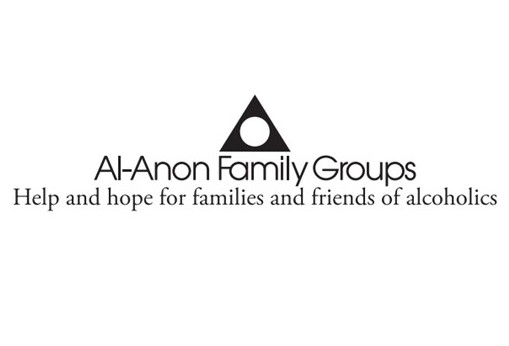
The first time I ever heard about Al-Anon was when the psychiatrist treating the alcoholic in my life met me for the first time. We were introduced, and he pointed his finger in my face and said “You need to go to Al-Anon.”
I was so angry—livid! How dare this man tell me what to do? How dare he force such a thing on me? Why did I need to go to Al-Anon? I didn’t even drink alcohol.
The next day I spoke to our marriage counselor. I told her what the finger-pointing man had said. Her response was, “You don’t have to go to Al-Anon if you don’t want to.” Later I realized that going to Al-Anon or not was my decision to make. The next day, I was at an Al-Anon meeting.
I thought I was going to a classroom, where I would be given textbooks and pop quizzes, and asked questions. Instead, I found a room full of people who had the same problem—an alcoholic in their lives. These kind people welcomed me, embraced me, and assured me I was in the right place. I had no idea there was an entire world full of people just like me. I was not alone anymore. Through Al-Anon meetings and literature, I have found ways to cope.
~ Donald C., Texas
Al-Anon Family Groups is a community resource that provides support to anyone affected by a relative or friend’s drinking. Currently, there are over 24,000 Al-Anon groups and nearly 1,500 Alateen groups meeting in 118 countries. The Fort Collins/Windsor area has numerous active Al-Anon groups with meetings every day of the week.
There is only one requirement for membership—that each member has been affected by someone else’s drinking. Members meet to share their experiences and apply the Al-Anon program to their lives. Spouses, partners, adult children of alcoholics, parents, and co-workers can all find help in Al-Anon. Al-Anon is nonprofessional, self-supporting, spiritually based, non-religious affiliated, and apolitical. There are no dues or fees. Groups are self-supporting, and usually pass a basket around for a voluntary contribution to pay for rent or Al-Anon literature.
Alateen is part of Al-Anon Family Groups and is designed for teenagers who are affected by a relative or friend’s misuse of or addiction to alcohol. Members conduct their own meetings with the guidance of adult Al-Anon members who are certified by their state or province to act as Alateen Group Sponsors.
Al-Anon/Alateen are anonymous fellowships, meaning who you see there, what is said at the meetings and in private conversations member-to-member are kept confidential, allowing a sense of trust and honesty to be developed. All members are equal, the focus being there are no professionals. Al-Anon/Alateen is a separate organization from Alcoholics Anonymous (A.A.); however, they are based on the Twelve Steps and Traditions adapted from A.A.
People are referred to Al-Anon/Alateen Group meetings to learn the facts about addiction to alcohol and how it has impacted their own lives physically, emotionally, and spiritually. Having contact with others who have similar problems offer great benefits through the sharing of experience, strength, and hope. The study and practice of Al-Anon’s Twelve Steps and Traditions helps improve attitudes and behaviors. Members learn the 3 Cs—they didn't cause it, they can’t control it, and they can’t cure the alcoholic. This can offer great relief from the burden of blame and shame related to the disease of alcoholism.
Open meetings may be attended by anyone interested in learning about the Al-Anon program, e.g., the public, professionals, and students. Closed meetings are for anyone whose life is or has been affected by someone else’s drinking. (Note: Each Alateen meeting is limited to its teen members and adult Alateen Group Sponsor, unless the meeting is opened by the teens to the public or for observation by professionals or students.)
Al-Anon recovery podcasts are also available on Al-Anon’s website. These podcasts offer professionals’ as well as members’ perspectives on family recovery and the benefits of Al-Anon Family Groups. Here’s what one member of Al-Anon had to say about the podcast titled “Connections between families, the Association for Addiction Professionals, and Al-Anon Family Groups.”
“As I listened to this interview, I thought about how great it would have been if the professionals I sought help from had referred me to Al-Anon. The doctor could only recommend antidepressants. A marriage counselor told me the term ‘alcoholic’ had bad connotations and that I needed to accept my husband’s decision to continue drinking. A psychiatrist told me that my husband had deviant behavior. My father referred to my husband as a ‘sociopath’.
“I’m glad I trusted my instincts to go to Al-Anon. I could really relate to the loneliness described in this interview. I thought it would never pass. The interview explains very clearly how important it is for family members to recover and for the family dynamics to change—not just to help the alcoholic to stay sober, but for the family members’ well-being.
“I liked hearing how family members are empowered by Al-Anon and can pass it (recovery) forward to other members still struggling with a loved one’s drinking, or even when the person attains sobriety.
“I felt encouraged by this interview, that more therapists and counselors are aware of the importance of family recovery and Al-Anon. I felt hope for future generations.”
Many Al-Anon members continue to seek professional assistance in addition to regularly attending meetings. The link between Al-Anon and the professional community has always been one of interchange, cooperation, and support. A referral or appointment in advance is not needed to attend Al-Anon meetings.
Reprinted with permission from Al-Anon Family Group Headquarters, Inc. Virginia Beach, Va.
For meeting information, you or your client can visit the local website www.al-anon-noco.org or call the 24-hr phone at 970-225-2666.